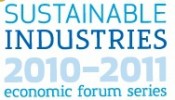Q&A: Peter Diamandis-Abundance Ahead
Written on March 28th, 2012 |
Aired 03/25/12
Recently the annual TED conference took place in Long Beach California. I have long recommended its famous 18 minute TED talks. Check out TED.com/talks, they cover a wide range of topics including science, technology, design, business, global issues and they have recurring themes of inspiration, challenge, and optimism. Not unlike what I try to do with this radio show.
On opening day the recent conference scheduled two talks one after the other. The first by Paul Gilding entitled The Earth is Full asked questions like Have we used up all our resources? Have we filled up all the livable space on Earth? Gilding suggests we have with the possibility of devastating consequences. In a talk that’s equal parts terrifying and oddly hopeful, he says “It takes a good crisis to get us going. When we feel fear and we fear loss we are capable of quite extraordinary things.”
That talk was followed by one by today’s guest, PETER DIAMANDIS, entitled Abundance Is Our Future in which he makes the case for optimism — that we’ll invent, innovate and create ways to solve the challenges that loom over us. “I’m not saying we don’t have our set of problems — problems – climate crisis, species extinction, water and energy shortage – we surely do. But ultimately, we knock them down.”
Since the dawn of humanity, a privileged few have lived in stark contrast to the majority. Conventional wisdom says this gap cannot be closed. But, according to a new book by Diamandis and co-author Steven Kotler, it is closing-fast. In Abundance: The Future is Better Than You Think, they document how progress in artificial intelligence, robotics, infinite computing, ubiquitous broadband networks, digital manufacturing, nanomaterials, synthetic biology, and many other exponentially growing technologies will enable us to make greater gains in the next two decades than we have in the previous two hundred years. They believe we will soon have the ability to meet and exceed the basic needs of every man, woman, and child on the planet.
http://www.abundancethebook.com
Q&A: CAMERON SINCLAIR
Written on February 10th, 2011 |
Aired 02/06/11
CAMERON SINCLAIR was trained as an architect at the University of Westminster and at the Bartlett School of Architecture, University College London. His postgraduate thesis focused on providing shelter to New York's homeless through sustainable, transitional housing. After his studies, he moved to New York where he worked as a designer and project architect.
In 1999 Cameron Sinclair and Kate Stohr founded Architecture for Humanity, a grassroots nonprofit organization that seeks architectural solutions to humanitarian crises. Sinclair and Stohr compiled a bestselling book Design Like You Give A Damn: Architectural Responses to Humanitarian Crises.
Sinclair is a TED prize recipient, a Young Global Leader of the World Economic Forum, and serves on advisory boards of the Acumen Fund, the Institute for State Effectiveness and the Ontario College of Art and Design. As a result of the 2006 TED Prize, Architecture for Humanity launched the Open Architecture Network, the world's first open source community dedicated to improving living conditions through innovative and sustainable design. Every two years this network hosts a global challenge to tackle a systemic issue within the built environment.
